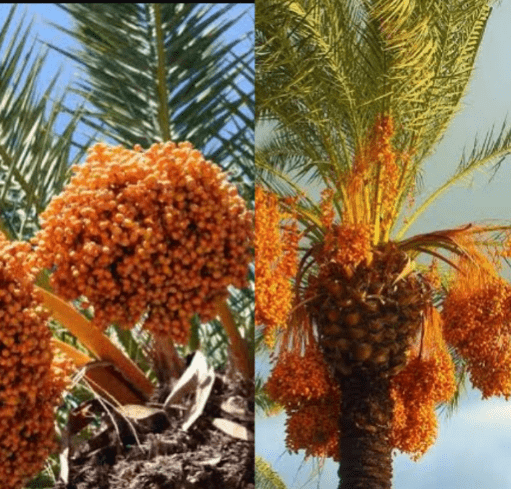This post has already been read 3036 times!
The date palm, scientifically known as Phoenix dactylifera, is a symbol of abundance and prosperity in many cultures around the world.
This ancient tree has been cultivated for thousands of years for its sweet and nutritious fruit, as well as for its numerous economic benefits. In this article, we will explore the economic importance of the date palm and why it is considered a fruitful investment for farmers and economies alike.
Historical Significance
The date palm is believed to have originated in the Middle East and North Africa, where it has been cultivated since ancient times. In these regions, dates have been a staple food source and a symbol of hospitality and generosity.
The date palm is mentioned in religious texts, ancient literature, and historical records, highlighting its cultural and economic significance throughout history.
Nutritional Value
Dates are not only delicious but also highly nutritious. They are rich in vitamins, minerals, and fiber, making them a healthy snack and a valuable source of energy.
Dates are also a versatile ingredient used in various culinary dishes, desserts, and beverages, further enhancing their economic value. 
Economic Benefits
The date palm offers a wide range of economic benefits, making it a valuable investment for farmers and economies. Here are some of the key economic advantages of cultivating date palms:
- Revenue Generation: Date palms are a profitable crop that can generate significant income for farmers.
The demand for dates is high in both domestic and international markets, providing farmers with a steady source of revenue.
- Job Creation: Date palm cultivation creates employment opportunities for a large number of people, including farmers, laborers, and workers in the date processing industry.
This helps stimulate economic growth and reduce unemployment in rural areas.
- Export Potential: Dates are a popular export commodity, with countries like Saudi Arabia, Iran, and Egypt being major exporters of dates.
By cultivating date palms, countries can tap into the lucrative international market and boost their export earnings.
- Diversification of Agriculture: Date palm cultivation helps diversify agricultural production and reduce dependence on traditional crops.
This can improve food security, increase resilience to climate change, and enhance the sustainability of agricultural practices.
- Value-Added Products: In addition to fresh dates, the date palm offers a range of value-added products such as date syrup, date paste, and date-based snacks.
These products have a high market value and can further increase the economic returns from date palm cultivation.
In conclusion, the date palm is not just a tree; it is a symbol of prosperity, a source of nutrition, and a driver of economic growth. By investing in date palm cultivation, farmers and economies can reap the benefits of this ancient and valuable crop.
With its high demand, nutritional value, and diverse economic opportunities, the date palm continues to be a fruitful investment for those who choose to cultivate it. Let us celebrate the economic importance of the date palm and the abundance it brings to our lives and livelihoods.
What out for more insights on date palms cultivation and benefits.
ABUJA BUSINESS REPORTS NEWSPAPER & MAGAZINE







